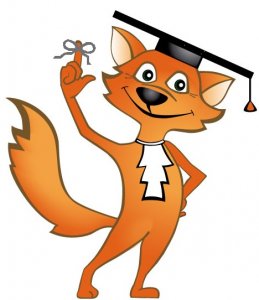Parts of Speech. Introduction to Russian Grammar

It is useful to know parts of speech while learning Russian because of different parts of speech decline in a different way. There are 8 main parts of speech: an adverb, an adjective, a conjunction, an interjection, a noun, a preposition, and a pronoun.
In Russian a noun, a pronoun, an adjective, and a verb decline.
An adverb, a conjunction, an interjection, and a preposition stay the same. That is why it is important to distinguish them.
Let’s have a look at them.
Adjective
An adjective is a word that describes a noun (color, size, quality).
In the following sentence words in bold are adjectives.
My Dad says that numerous studies show that learning a foreign language improves your grey matter in the same way as physical exercise improves your body.
The examples of Russian adjectives: красный, большая, маленькое.
Adverb
An adverb is a word that answers questions when, how, why, what for, etc.
Read the Grammar section thoroughly. Here you will find the explanation of the new language and grammar rules that will help you use this language properly.
Russian adverbs don’t undergo changes.
The examples of Russian adverbs: хорошо, надо, счастливо.
Conjunction
Conjunction is a word that links words and phrases.
In the following sentences, words in bold are conjunctions.
I love fruit: apples, oranges, and grapes, but I don’t like pineapples, because I am allergic to them.
The examples of Russian conjunctions: и, но, или.
Interjection
An interjection is a word that expresses emotion. It is not connected grammatically to other parts of the speech.
In the following sentences, words in bold are Interjections.
Oops! What did I just say? Well, it‘s late anyway to apologize.
The examples of Russian interjections: а, ой, ах, ну.
Ой! Что это я сказал? А, всё равно уже поздно извиняться. = Oops! What did I say? Anyway, it’s too late to apologize.
Noun
A noun is a word that represents an animate object (a person, an animal), an inanimate object (a thing, a place) or an abstract idea.
In the following sentence words in bold are nouns.
My Dad says that numerous studies show that learning a foreign language improves your grey matter in the same way as physical exercise improves your body.
The word ‘learning’here is a gerund. A gerund is often translated into Russian as a noun.
In English, it also often functions as a noun.
The examples of Russian nouns: Джон, кот, машина, упражнение, язык.
Preposition
A preposition is a word that links words and phrases, showing the relationship between them.
In the following sentences, words in bold are prepositions.
He entered the room, looked at me and said: “I did not see you at work on Friday. Nancy was asking about you.
The examples of Russian prepositions: на, в, перед, о.
Pronoun
A pronoun is a word that replaces a noun or an adjective instead of naming them.
In the following sentences, words in bold are pronouns.
This is my Dad. Do you see him? Oh, and who is that lady, standing next to him? I don’t know her.
Pronouns can be divided into 4 different types:
Personal: I, you, he, it, they, me, them, etc.
Possessive: my, your, their, etc.
Demonstrative: this, that, those, these
Interrogative: who, whom, what, which, whose
Look at these phases one more time.
This is my (possessive) Dad. Do you (personal) see him (personal)?
Oh, and who (interrogative) is that (demonstrative) lady, standing next to him (personal)?
I (don’t know her (personal).
The examples of Russian pronouns: он, она, оно, меня, вам, твой.
Verb
A verb is a word that describes an action or state of being.
In the following sentences, words in bold are verbs.
My Dad says that numerous studies show that learning a foreign language improves your grey matter in the same way as physical exercise improves your body. My Dad is a very smart man.
The examples of Russian verbs: идти, слушать, заниматься.
